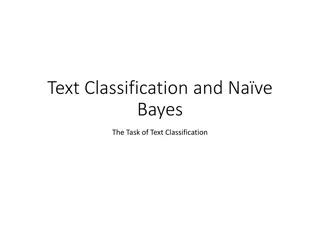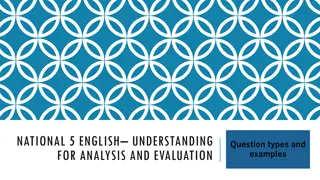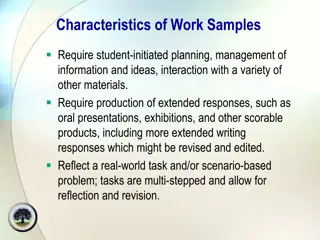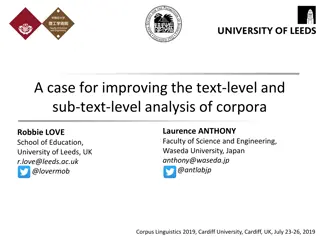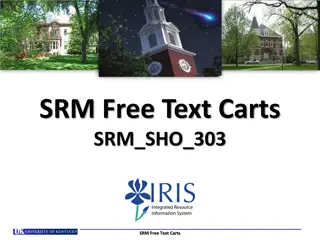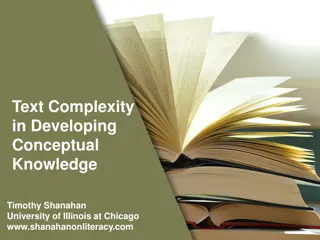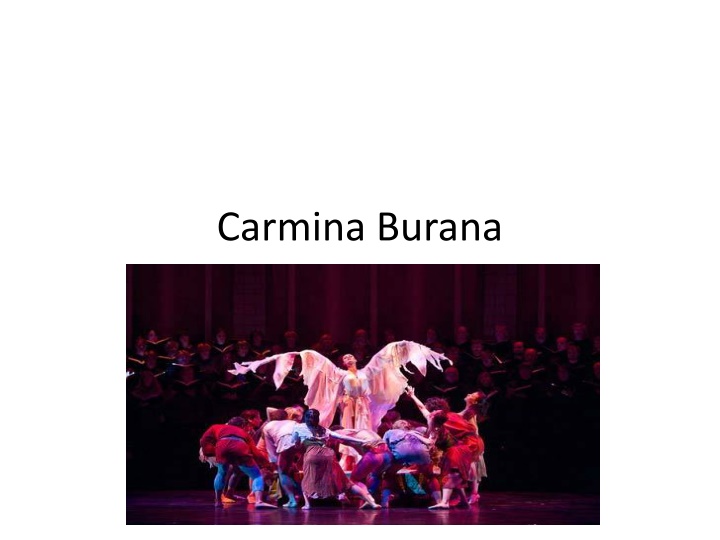
Carmina Burana: Fate and Fortune in Latin Poetry
Dive into the world of Carmina Burana, exploring themes of fate, fortune, and the human experience through Latin poetry. Discover the beauty and depth of this timeless work as it delves into the complexities of life and destiny.
Download Presentation

Please find below an Image/Link to download the presentation.
The content on the website is provided AS IS for your information and personal use only. It may not be sold, licensed, or shared on other websites without obtaining consent from the author. If you encounter any issues during the download, it is possible that the publisher has removed the file from their server.
You are allowed to download the files provided on this website for personal or commercial use, subject to the condition that they are used lawfully. All files are the property of their respective owners.
The content on the website is provided AS IS for your information and personal use only. It may not be sold, licensed, or shared on other websites without obtaining consent from the author.
E N D
Presentation Transcript
1st Nom Gen Dat Acc Abl 2nd Nom Gen Dat Acc Abl fortuna, f a ae ae am a ludo, m us i o um o Fortuna is vocative velut = just like (simile) -s = you (o,s, t, mus, tis, nt, I, you, he, we you they) 3rddecl adj w/ 1st decl noun -t = he/ she/ it -em = direct object ut = as/ like (simile) O Fortuna velut luna statu variabilis, semper crescis aut decrescis; vita detestabilis nunc obdurat et tunc curat ludo mentis aciem, egestatem, potestatem dissolvit ut glaciem. ae arum is as is i orum is os is There is one noun or adjective in each of the five declensions. Find them. Find 5 words, one in each declension, and write it down, telling me which declension it s in. 3rd Nom Gen Dat Acc Abl 4th Nom Gen Dat Acc Abl variabilis, c - is i em e statu, m us us ui um u es um ibus es ibus us uum ibus us ibus 5th Nom Gen Dat Acc Abl the (subj) of (poss) to/ for (DO) by/w/fr/ in aciem, f es ei ei em e Nom Gen Dat Acc Abl es erum ebus es ebus
sors, sortis, 3rd decl fem = fate/ lot immanis, 3rd decl adj = monstrous inanis, 3rd decl adj = empty tu = apostrophe; rota & tu are in apposition (2 nouns that refer to the same thing) volubilis, 3rd decl adj rolling/ winding vanus, vana, vanum, 1st and 2nd decl adj = empty salus, salutis, 3rd decl fem = health -s = you obumbrata & velata are perf pass part (4th prin part verb, verb acting as adjective, translated having been ) obumbrata comes from umbra velata = having been veiled mihi is dat of ego; niteris takes dat niteris, deponent verb using passive endings: r, ris, tur, mur, mini, ntur niteris = you lean upon ludum is acc after per (ab cum de, ex in, pro, sine sub takes abl; everything else takes acc) scelus, sceleris, 3rd decl neut = crime/ wickedness tui is send decl adj agreeing with 3rd decl noun Sors immanis et inanis, rota tu volubilis, status malus, vana salus semper dissolubilis, obumbrata et velata mihi quoque niteris; nunc per ludum dorsum nudum fero tui sceleris.
mihi nunc contraria est is a complete phrase; est goes with previous line, not affectus affectus and defectus are perf pass part defectus = having been let down angaria = servitude mora is abl after sine tangite is a pl imp (pl imp = inf re (sing imp) + te ) corde pulsum literally means in the heart having been struck ; here it has the effect heart strings as the direct object of tangite quod here mean because sortem is in acc after per sternit = he/ she/ it strew fortem is substantive (adj acting like noun; one who is , those who are ) and dir obj of sternit mecum = cum me omnes is vocative plangite is pl imp plangite = mourn Sors salutis et virtutis mihi nunc contraria, est affectus et defectus semper in angaria. Hac in hora sine mora corde pulsum tangite; quod per sortem sternit fortem, mecum omnes plangite!








